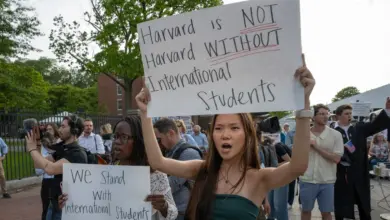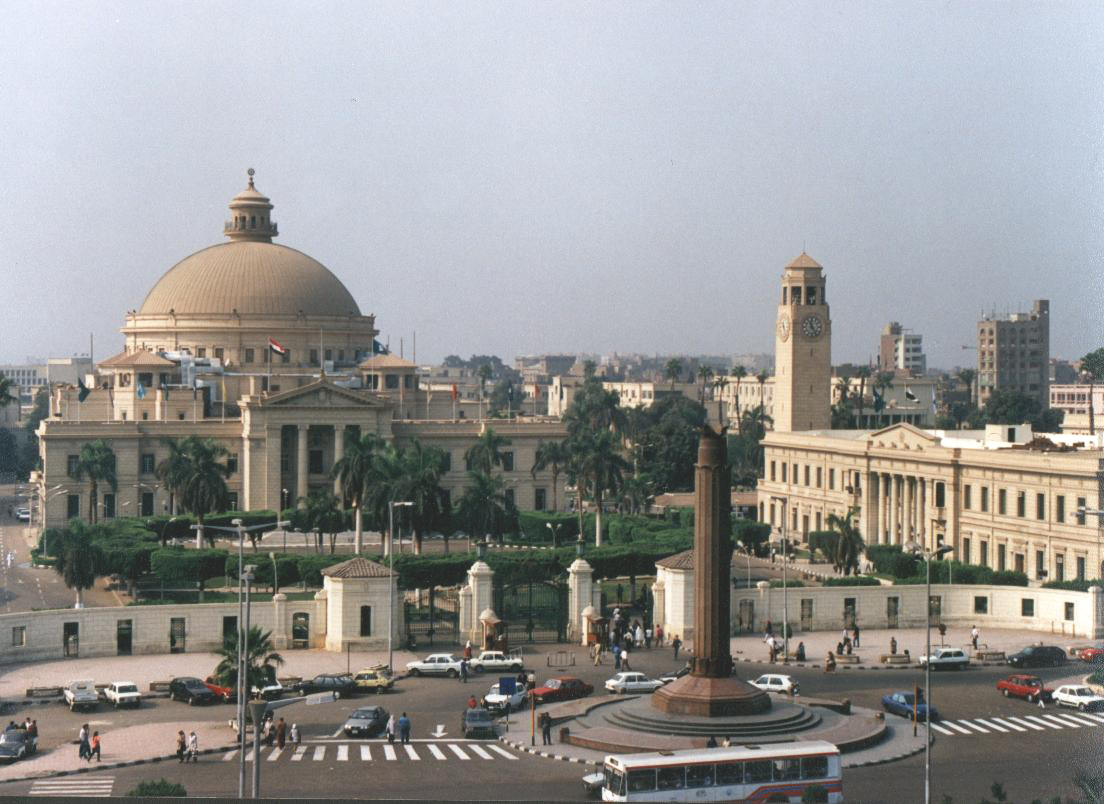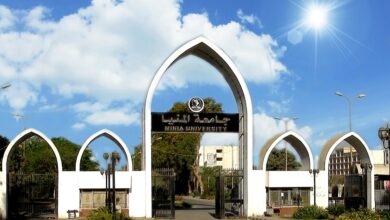Cairo University, Egypt’s largest public university, voted for its student union this year weeks after the vote was initially scheduled, due to strikes over electoral regulations holding up the process. Al-Azhar University has yet to have elections. Zagazig University held elections, but turnout was so low that the dean appointed the student union.
The student union elections, which ran from early April until last week, were a particularly confusing and convoluted affair this year as students fretted about the lack of legitimate regulations for the elections process.
Ever since 11 February 2011, student activist groups have been looking to implement a new set of laws and rules that allow for more freedom and participation in student life. Higher Education Minister Hassan Khaled’s attempt to implement a new system was criticized by student groups mainly because he consulted only a select group of students on the issue and because the ministry should not be involved in deciding on these regulations to begin with. He was forced to go back on his decision after student groups unanimously protested.
The High Council for Universities, a government body presided over by the Higher Education Ministry that facilitates coordination of academic and student life between public universities, should have already helped student unions come up with their own set of regulations over the past year.
Khaled instead decided to go back to working on an older set of regulations after student activists protested against the implementation of regulations proposed behind closed doors by the Association of Egypt’s Student Unions, a group that ostensibly gathers the heads of all student unions to coordinate. The protests held that the ministry should not have been in charge of coordinating the effort to propose new regulations. As per these older laws, they could not go a full year without elections. Consequently, elections could not wait until early next year, when students would be free from worrying about exams.
Last Sunday, an administrative court postponed a claim put forth by the Association for Freedom of Thought and Expression against the minister’s decision to go ahead with elections without a set of new regulations.
“The claim states that the laws under which the student union elections happened were illegitimate, and that the minister was legally at fault for allowing it,” said Weam Mokhtar, an AFTE researcher who has been working on the student union elections.
The court will reconvene on 20 May. If the AFTE’s claim is accepted, this year’s elections should be nullified and new elections held the beginning of the next school year based on new regulations, according to Mokhtar.
Some political groups boycotted the elections due to the fact that over a year has passed and they had not yet been allowed to rewrite the constricting rules that govern them.
“We are boycotting because we think it is more important to institutionalize student life and the laws that govern it before an election,” said Ahmed Annany, a member of Ain Shams University activist group Moqawma.
In the past, student union elections were largely rigged, and for the most part, students were voted in only after being approved by State Security Investigation Services. This limited political activity on campus and rendered the student union little more than sycophantic institution that organized social events. As a result, participation in student elections was already low.
This year, student activists and many political groups decided to boycott the elections.
“Because of the controversy over the student regulations, elections were all delayed,” said Mokhtar, who organized poll monitoring with many student groups.
Student groups that did participate said they were concerned that if the year ended without student union elections, the boycott would do more harm than good.
“Many of our student union members had already graduated and been drafted to the military. We needed to have elections to have someone present representing the students,” said Abdallah Gamal, a member of the Muslim Brotherhood at Alexandria University.
Gamal, a second-year veterinary student, says that while the Muslim Brotherhood also objects to Khaled’s attempt to implement new regulations, a student union must be in place to help represent students in negotiations with the Higher Education Ministry and the High Council for Universities.
Instead of acting as a uniform set of official regulations for all public universities, the minister’s decision to use the 1979 regulations created a chaotic affair, as evidenced by all the different procedures adopted by universities and the different timings of the elections.
Alexandria University President Osama Ibrahim decided to write his own set of regulations, totally disregarding the set from 1979.
“It was a nearly eight-page document that just appeared before the elections,” said Mostafa al-Sayed, a leftist student activist who helped AFTE observe the elections.
While this set of regulations does get rid of some of the more draconian clauses in the 1979 regulations, such as the provision that any candidate or voter must have paid all their university fees, some activists believe that it is a haphazard way to solve a deeper problem. Sayed thinks it leaves the door open for the group in power now to set whatever rules they like.
In Alexandria, Muslim Brotherhood student groups won a majority of the seats.
“They started insisting on absurd rules already,” he said. On an upcoming social trip to an amusement park, Sayed claims that the Brotherhood led committee is forcing gender separation, which was uncommon before.
Most accounts say that participation was low across the board. It is difficult to specify participation since universities have not released numbers.
“I think the media gave the wrong impression of the elections. We had widespread participation and it was very competitive this year,” said Gamal, who was a candidate on one of the cultural committees.
Individual elections — which span hundreds of seats in numerous committees, years, and overall student unions for the universities — have rarely met the stipulation in the 1979 regulations that 50 percent of eligible students vote to be legitimate. Otherwise a smaller percentage was accepted in a runoff, and if the 50 percent quorum is not achieved the university would hold another election with a 30 percent quorum.This year, most universities decided to ultimately go with the absolute majority of voters, even if the quorum is not reached.
“It was a fiasco,” said Mohamed Lasheen, a fourth-year student at Ain Shams University. “No one knew about the elections. No one had enough time to campaign. Some polling stations were empty all day.”
At Ain Shams, independents took a majority of the seats, leaving the Muslim Brotherhood with only around 30.
Hesham Mohsen, a second-year architecture student at Cairo University, believes that a majority of those who chose to vote did so based on loose political affiliations.
“It was a mess. Some would vote just to make the Brotherhood lose, others to get them to win. There was very little student union issues in the polling stations,” said Mohsen, a member of Moqawma, which chose to boycott the elections. In the absence of a clear role for student unions, the elections lost their true meaning, Mohsen said.
At Cairo University, the Brotherhood also did not win a majority. Both secretary general of the Cairo University Student Union and the deputy secretary general were won by independents, and both runners up were Brotherhood candidates. Even so, Mohsen says he believes there was no real system to entice enough students to vote, or for the elections to be considered legitimate.
The higher education minister said he would create a new set of regulations to be implemented with the elections, next year. Most political groups reject that and demand new elections.
Meanwhile, the Brotherhood is attempting to gather consensus for the 2012 regulations proposed by the Coalition of Egypt’s Student Unions, of which the group is a part.




